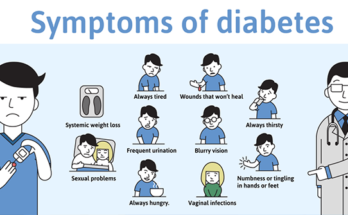Introduction to Prostate Cancer
Prostate cancer is one of the most common cancers affecting men today. According to the American Cancer Society, about 1 in 9 men will be diagnosed with prostate cancer during their lifetime. Early detection is crucial in improving survival rates and enhancing the quality of life for those affected. This blog post aims to provide valuable insights into prostate cancer, from understanding the prostate gland to exploring various treatment options.
Understanding the Prostate Gland and Its Role in Men’s Health
The prostate gland is a small, walnut-sized organ located below the bladder and in front of the rectum. It plays a significant role in men’s reproductive health by producing a fluid that nourishes and transports sperm. Despite its small size, the prostate gland can have a big impact on a man’s overall health, making it essential to understand its function and potential health issues.
The prostate gland’s primary function is to produce prostatic fluid, which is a component of semen. This fluid helps to protect and energize sperm, facilitating successful reproduction. Additionally, the muscle fibers in the prostate aid in expelling semen during ejaculation. Given its vital role, maintaining prostate health is crucial for men’s well-being.
Signs and Symptoms of Prostate Cancer
Early-stage prostate cancer often presents with no symptoms, making regular screenings vital for early detection. However, as the cancer progresses, certain signs and symptoms may become apparent. These include difficulty urinating, a weak or interrupted urine flow, frequent urination (especially at night), blood in the urine or semen, and pain or discomfort in the pelvic area.
Men experiencing any of these symptoms should consult a healthcare professional promptly. It’s important to note that these symptoms can also be caused by non-cancerous conditions, such as benign prostatic hyperplasia (BPH). Therefore, proper diagnosis is essential for determining the underlying cause and appropriate treatment.
The Importance of Regular Health Check-ups for Prostate Cancer Screening
Regular health check-ups play a crucial role in the early detection of prostate cancer. Men over the age of 50, or those with a family history of prostate cancer, should prioritize routine screenings. Early detection significantly increases the chances of successful treatment and reduces the risk of complications.
Healthcare professionals recommend that men discuss their risk factors and screening options with their doctors. By staying proactive and informed, men can take control of their prostate health and catch potential issues before they escalate. Routine check-ups are a simple yet effective way to ensure long-term well-being.
Diagnostic Tests for Prostate Cancer
Several diagnostic tests are available for detecting prostate cancer. The most common ones include the Prostate-Specific Antigen (PSA) test, Digital Rectal Exam (DRE), and biopsy. Each test serves a unique purpose in the diagnostic process, and they are often used in combination to provide a comprehensive assessment.
PSA Test
The PSA test measures the level of prostate-specific antigen in the blood. Elevated PSA levels can indicate the presence of prostate cancer, although other conditions, such as BPH or prostatitis, can also cause high PSA levels. Regular PSA testing helps monitor changes over time and identify potential concerns early.
Digital Rectal Exam (DRE)
During a DRE, a healthcare professional inserts a gloved, lubricated finger into the rectum to examine the prostate gland. This test allows the doctor to feel for any abnormalities, such as lumps or hard areas, that may indicate cancer. While the DRE can be uncomfortable, it is a quick and valuable tool for early detection.
Biopsy
If elevated PSA levels or abnormal DRE results are detected, a biopsy may be recommended. During a biopsy, small tissue samples are taken from the prostate and examined under a microscope for cancer cells. A biopsy provides a definitive diagnosis and helps determine the cancer’s aggressiveness, guiding treatment decisions.
Treatment Options for Prostate Cancer
Several treatment options are available for prostate cancer, each tailored to the individual’s specific condition and preferences. Common treatments include surgery, radiation therapy, hormone therapy, and active surveillance. Understanding these options can help men make informed decisions about their care.
Surgery
Surgery involves the removal of the prostate gland, a procedure known as a prostatectomy. This option is typically recommended for localized cancer that has not spread beyond the prostate. Advances in surgical techniques, such as robotic-assisted surgery, have improved outcomes and reduced recovery times.
Radiation Therapy
Radiation therapy uses high-energy rays to target and kill cancer cells. It can be delivered externally through external beam radiation or internally through brachytherapy. Radiation therapy is an effective option for both localized and advanced prostate cancer, often used in combination with other treatments.
Hormone Therapy
Hormone therapy, also known as androgen deprivation therapy (ADT), aims to reduce the levels of male hormones (androgens) that fuel prostate cancer growth. This treatment can slow the progression of the disease and is often used in conjunction with other therapies for advanced or recurrent cancer.
Active Surveillance
Active surveillance involves closely monitoring the cancer without immediate treatment. This approach is suitable for men with low-risk, slow-growing prostate cancer. Regular check-ups, PSA tests, and biopsies are conducted to track the cancer’s progression. Treatment is initiated if the cancer shows signs of becoming more aggressive.
Lifestyle Changes for Preventing and Managing Prostate Cancer
Adopting a healthy lifestyle can play a significant role in preventing and managing prostate cancer. Making positive changes in diet, exercise, and overall wellness can enhance prostate health and improve treatment outcomes.
Balanced Diet
A diet rich in fruits, vegetables, whole grains, and lean proteins can support prostate health. Foods high in antioxidants, such as tomatoes, berries, and green tea, may help reduce the risk of prostate cancer. Limiting red meat, processed foods, and high-fat dairy products is also beneficial.
Regular Exercise
Regular physical activity helps maintain a healthy weight and reduces the risk of various cancers, including prostate cancer. Aim for at least 150 minutes of moderate exercise or 75 minutes of vigorous exercise per week. Activities like walking, swimming, and cycling are excellent options.
Stress Management
Chronic stress can negatively impact overall health, including prostate health. Incorporating stress-reducing practices, such as mindfulness, meditation, and yoga, can improve mental well-being and support the body’s natural defenses against cancer.
Support and Resources for Men Diagnosed with Prostate Cancer
Receiving a prostate cancer diagnosis can be overwhelming, but numerous support and resources are available to help men and their families through this challenging time. Connecting with others who are going through similar experiences can provide emotional support and valuable insights.
Support Groups
Support groups offer a safe space for men to share their experiences, ask questions, and receive encouragement from others who understand their journey. Many organizations, such as the Prostate Cancer Foundation and Us TOO International, provide both in-person and online support groups.
Educational Resources
Staying informed about prostate cancer is crucial for making informed decisions about treatment and management. Reputable sources, such as the American Cancer Society and the National Cancer Institute, offer comprehensive information on prostate cancer, treatment options, and coping strategies.
Professional Counseling
Professional counseling or therapy can help men and their families cope with the emotional and psychological aspects of a prostate cancer diagnosis. Mental health professionals can provide guidance, support, and coping strategies to manage anxiety, depression, and other challenges.
Conclusion
Prostate cancer is a significant health concern for men, but early detection and treatment can greatly improve outcomes. By understanding the signs and symptoms, prioritizing regular screenings, exploring treatment options, and adopting a healthy lifestyle, men can take proactive steps to protect their prostate health.
If you or a loved one is concerned about prostate cancer, don’t hesitate to seek medical advice and support. Together, we can raise awareness, encourage early detection, and support those affected by this disease. Take charge of your prostate health today and schedule a check-up with your healthcare provider.




Использовать входящий параметр с умом Sql-иньекция для новичков
1x7ior
Бренд Balenciaga — это легендарный парижский бренд, известный своим смелым стилем. Созданный в начале XX века легендарным модельером Кристобалем Баленсиагой, он быстро стал влиятельным именем в мире моды. Сегодня Balenciaga славится своими авангардными коллекциями, вызовами стандартам.
https://balenciaga.metamoda.ru